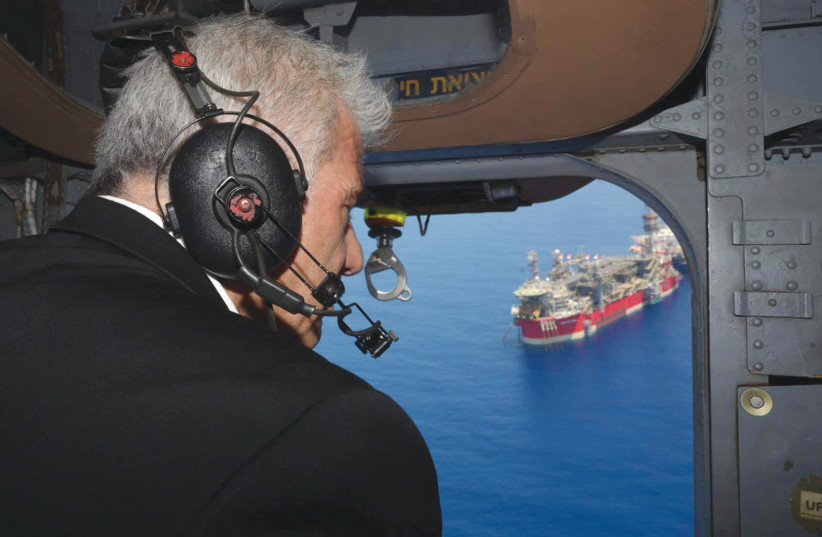Israel warned that Lebanon would pay the price for any Hezbollah attack on its offshore Karish gas field, even as it said it hoped a US-brokered deal to set a maritime boundary in the north was close to completion.
“If [Hezbollah leader Hassan] Nasrallah wants to try and harm and to complicate this process, he is welcome to do so, the price is Lebanon,” Defense Minister Benny Gantz told Reichman University’s 21st World Summit on Counter-Terrorism on Thursday morning. “I hope for his sake that he won’t do this, we are prepared to defend our interests.”
US mediation of maritime border dispute
Gantz’ words come as US envoy Amos Hochstein appears to be on the edge of concluding a deal between the Lebanese and Israeli governments to set a maritime border off the Mediterranean Sea. It would give Israel rights to the Karish gas field and Lebanon the right to the abutting Kana gas field.
Finalizing the deal has become increasingly urgent given that the Karish gas field is set to start production next month. Hezbollah has issued threats against the deal.
In the end, there will be two gas rigs, one that belongs to Israel and one that belongs to Lebanon, Gantz said, adding that the only question is whether there will be a violent outbreak in the middle, but that the final outcome will be the same.

Gantz said that Israel was prepared to seal a deal, but would militarily defend its right to the Karish gas field, which it maintains is fully within its territorial waters.
The IDF hopes that the maritime agreement will be signed soon, but a senior military official warned that the military is always prepared for a scenario where there could be a deterioration in the situation along the northern front.
The official said that most of the clauses in the deal regarding the economic waters did not require Hezbollah’s approval, as they were already agreed upon by everyone at the beginning of the negotiation. The group is anyways conducting a public relations campaign around the Karish gas rig, which is targeted at its Lebanese supporters.
At the State Department briefing on Wednesday, spokesman Ned Price said that Hochstein is “continuing that robust engagement to bring the maritime boundary discussions to a close. We continue to narrow the gaps between the parties, and we believe a lasting compromise between the parties is possible. We welcome the consultative spirit that both parties have brought to this in an effort to reach a resolution.”
What does Israel's National Security Council think?
“Israel is interested in a stable Lebanon and does not want to see Lebanon disintegrate.”
National Security Advisor Eyal Hulata
At the ICT conference in Herzliya, National Security Advisor Eyal Hulata said that Nasrallah’s threats had grown over the last year, and that the maritime border was simply an excuse.
“Israel is interested in a stable Lebanon and does not want to see Lebanon disintegrate,” Hulata said, explaining that Israel’s concern was the influence of the terrorist group Hezbollah in Lebanon, even though it was a non-state actor.
Israel will not be deterred by Hezbollah threats and will continue to advance its energy interests, Hulata said.
The Karish gas rig will be brought online as soon as it is ready so that Israel can fulfill agreements to provide natural gas to Egypt and the European Union, he said.
